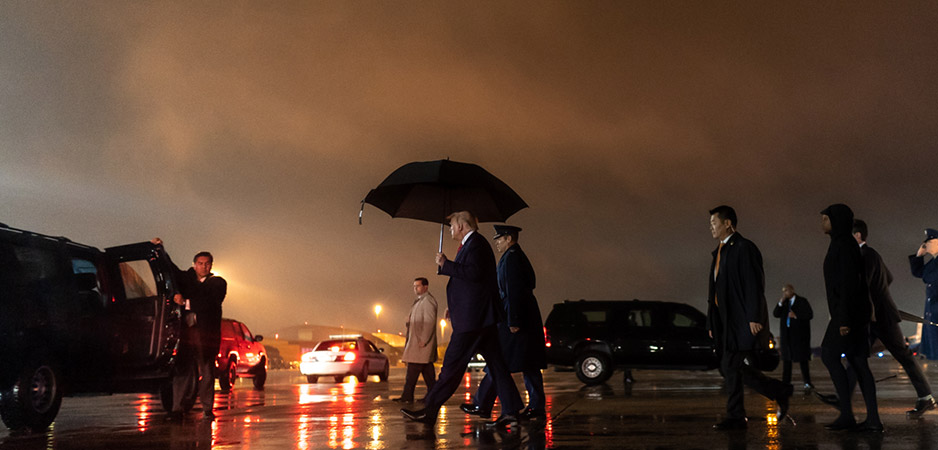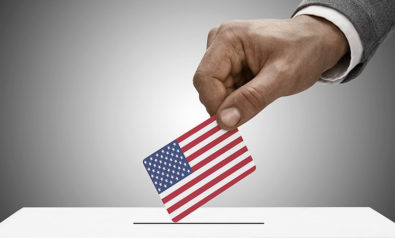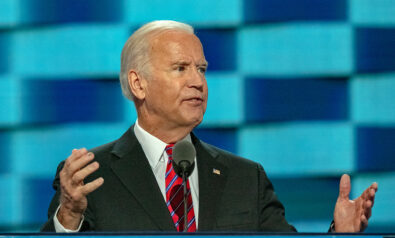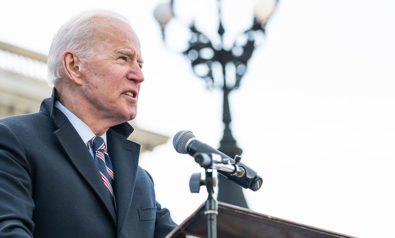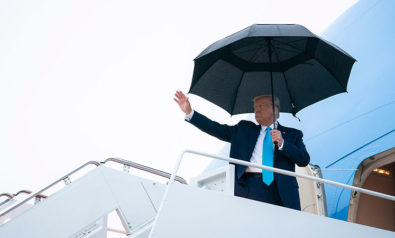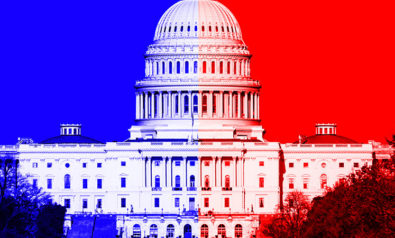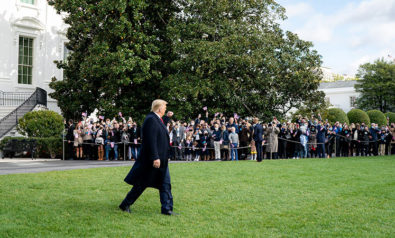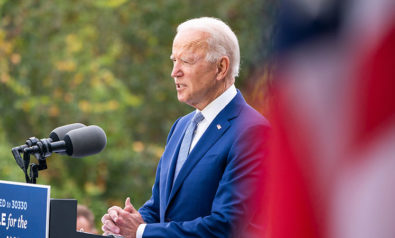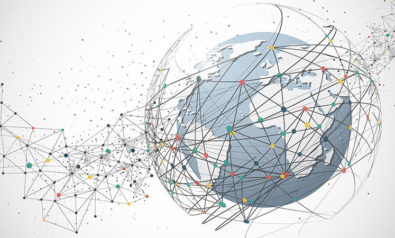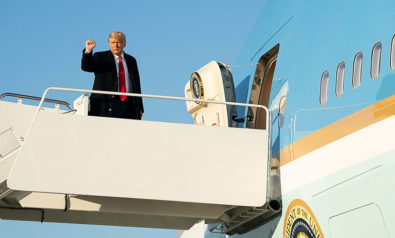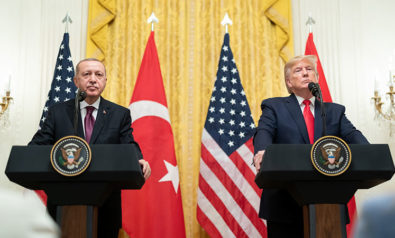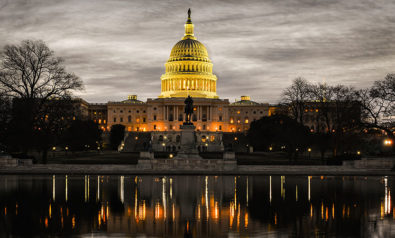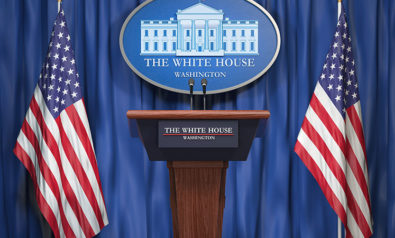Whether Donald Trump will serve four more years as president of the United States will be decided on November 3. America’s partners should nonetheless already be thinking about what Trump will leave behind — namely the consequences of his policies — if he loses the election and agrees to hand over power to his challenger, Joe Biden.
Every US president sets priorities for domestic developments as well as for the country’s positions in foreign and security policy. Given the international weight of the United States — still by far the most powerful nation in the world in terms of absolute power, even when compared to China — American presidents will always shape the international order, too.
What the Death of Ruth Bader Ginsburg Means for America’s Political Future
Incoming presidents of any party have traditionally accepted many of the legacies of their predecessors, while simultaneously setting new accents. This is not surprising; it is a characteristic of a functioning state. The foreign policy, security, economic and ecological challenges that a new president faces the first day in office are not, after all, fundamentally different from those challenges that were on the table the day before.
Only Trump has consciously departed from this pragmatic and statesmanlike tradition. Fighting against the legacy left behind by his predecessor, Barack Obama, has been a central part of his agenda. Consequently, Trump rescinded financial market rules and environmental laws of the Obama administration, withdrew the US from the nuclear agreement with Iran, and also pulled out of the Trans-Pacific Partnership, the Paris Climate Accord and other international agreements.
Should Trump be replaced by Biden, the new president will certainly reverse some of the most blatant measures of his predecessor — if only to regain trust and strengthen the international reputation of the United States again. This applies, in particular, to the Iran nuclear agreement and the climate accord. Biden will not be able to turn the wheel of history back to the end of the Obama era, however. He will have to deal with — and his presidency will partly be shaped by — a Trump legacy that cannot simply be undone by resigning some important international agreements.
Four Elements Stand Out From This Legacy
First, there is the political polarization in the US, which is as intense as it was during the Vietnam War. A new president may attempt to reunite the country politically and to mitigate the growing social inequalities through social and tax policies. However, neither the political nor social divisions in America will simply disappear with a change of political direction.
Second, the tense relationship with China will test the Biden administration from the beginning. Trump certainly did not cause the rise of China. Even Obama had tried to redirect the focus of American policy toward Asia — he saw China’s rise as a game-changer but, overall, still regarded Beijing as a partner. In the meantime, China’s policy has become more challenging.
There is a wide-ranging bipartisan consensus in the US for taking a tough stance toward Beijing. President Trump, however, has weakened America’s position in the rivalry with China by duping friends and allies, leading the US out of international institutions and agreements, and thus creating empty spaces that China could, and did, fill.
Strategic rivalry between the US and China is likely to remain a guiding paradigm of international relations, even under a Biden administration — a conflict that structures world politics with power-policy, security, economic, technological and ideological dimensions. How this rivalry will be shaped and evolve will largely depend on future US policy.
Third, a new president will have to deal with the loss of international trust. Much here depends on the personality of the individual in the White House. As president, Biden would likely enjoy an advance of international trust. This could even help him to push for certain demands that not only Trump has articulated — not least that America’s NATO partners increase their defense spending. Any successor to Trump, however, no matter how much they may be trusted as a person, will be confronted with a new form of skepticism, if not fear, among international partners that any agreement they may negotiate today could be called into question after another change in the White House.
For this reason alone, new negotiations with Iran or future arms control talks with Russia and/or China will become more difficult. Negotiating partners will want to offer less if they cannot be sure that future presidents will also abide by an agreement. American negotiators, however, are more likely to demand more in order to make such agreements more acceptable across the political spectrum in Congress, and thereby prevent a new president from simply turning them over.
Finally, multilateral institutions and international organizations have been weakened, not only as a result of Trump’s policies but also his active contributions. For the first time since the end of the Second World War, we live in a world with fewer binding rules than four years ago. Important arms control agreements have been terminated, the World Trade Organization has been weakened, and the legitimacy and financial resources of the United Nations have been under attack.
A new president can certainly try to change course and recommit the United States to shaping and supporting multilateral institutions, but other actors on the world stage have become more self-confident and assertive during the last four years. These actors, China above all, are unlikely to be interested in the emergence of binding new international rules that could restrict their freedom of action.
And Europe? It is simply not enough to hope that Trump will be voted out of office and then relax if it happens. The European Union and its member states must seriously think about how they could help a new US president to regain international trust for the country. Europe can hardly expect that the United States under Biden will set out to safeguard international order on its own. Nor should it expect a Biden administration to simply adopt Europe’s multilateral agenda.
Instead, Europe needs to strengthen its own capabilities, and it should take the initiative and press for a joint strategic analysis and agreement with the US on future issues — climate, digitization and the relationship with China, among other areas. Moreover, Europe will also have to explain how it envisages fair burden-sharing in order to create a more symmetric transatlantic relationship.
*[This article was originally published by the German Institute for International and Security Affairs (SWP), which advises the German government and Bundestag on all questions relating to foreign and security policy.]
The views expressed in this article are the author’s own and do not necessarily reflect Fair Observer’s editorial policy.
Support Fair Observer
We rely on your support for our independence, diversity and quality.
For more than 10 years, Fair Observer has been free, fair and independent. No billionaire owns us, no advertisers control us. We are a reader-supported nonprofit. Unlike many other publications, we keep our content free for readers regardless of where they live or whether they can afford to pay. We have no paywalls and no ads.
In the post-truth era of fake news, echo chambers and filter bubbles, we publish a plurality of perspectives from around the world. Anyone can publish with us, but everyone goes through a rigorous editorial process. So, you get fact-checked, well-reasoned content instead of noise.
We publish 2,500+ voices from 90+ countries. We also conduct education and training programs
on subjects ranging from digital media and journalism to writing and critical thinking. This
doesn’t come cheap. Servers, editors, trainers and web developers cost
money.
Please consider supporting us on a regular basis as a recurring donor or a
sustaining member.
Will you support FO’s journalism?
We rely on your support for our independence, diversity and quality.


